-
Welcome to rpgcodex.net, a site dedicated to discussing computer based role-playing games in a free and open fashion. We're less strict than other forums, but please refer to the rules.
"This message is awaiting moderator approval": All new users must pass through our moderation queue before they will be able to post normally. Until your account has "passed" your posts will only be visible to yourself (and moderators) until they are approved. Give us a week to get around to approving / deleting / ignoring your mundane opinion on crap before hassling us about it. Once you have passed the moderation period (think of it as a test), you will be able to post normally, just like all the other retards.
You are using an out of date browser. It may not display this or other websites correctly.
You should upgrade or use an alternative browser.
You should upgrade or use an alternative browser.
Archmage Rises - the play-how-you-want mage simulator - now available on Early Access
- Thread starter BobtheTree
- Start date
- Joined
- Jan 28, 2011
- Messages
- 100,696















https://www.archmagerises.com/news/2022/10/15/update-156-save-and-design-data-systems
Today we dive into our Save and Design Data Systems- two systems that are easily (and reasonably) taken for granted, but can take a lot to get working behind the scenes in a game as massive as Archmage Rises.
Learn more in the video above.
Darth Canoli
Arcane
Wow, what a bunch of geniuses! They managed to include a save system!
What's next? Mouse support? Some sound effects?
Maybe, down the line, they'll even include some actual gameplay?
What's next? Mouse support? Some sound effects?
Maybe, down the line, they'll even include some actual gameplay?
Disappointing. It looks like a flash game
Harthwain
Arcane
- Joined
- Dec 13, 2019
- Messages
- 5,673
Eh, The Consuming Shadow looks like a flash game, but it is in fact a pretty cool title.Disappointing. It looks like a flash game
c u in da ballpit ashren
Learned
- Joined
- May 7, 2021
- Messages
- 206
Some orc ones maybe?will there be romanceable elf waifus?
- Joined
- Jan 28, 2011
- Messages
- 100,696















Burnout: http://www.archmagerises.com/news/2...t-factors-no-one-talks-about-this-is-game-dev
SMALL TEAM INDIE BURNOUT: FACTORS NO ONE TALKS ABOUT | THIS IS GAME DEV
What if you are already following best practices, and people are still burning out? Now what?!
Despite a work environment with low deadline pressure, strict work schedule of 40hrs 5 days a week, 3 weeks vacation a year, one of our team members has just dropped out due to burnt out.
I see discussion of crunch and burnout in AAA and large team environments, but less discussed is the small indie team challenges that can lead to burn out.
The game dev literature1 I’ve encountered focus on high stress, long hour, 7 day a week Crunch, with all the negative effects on the team. The conclusion is we should work normal hours, just like other more mature industries.
Well, I’ve worked in transportation logistics and software for 20+ years and they have all the same struggles, so the grass isn’t quite so green on the other side of the fence.
With the simplistic “work less” already handled, this requires some serious introspection as we dig to uncover core issues. How did we get here?!
1 GameDeveloper articles, Blood, Sweat, and Pixels, Press Reset, GDC talks
The Sweet Siren Song of Indie
I know several top developers who have left AAA studios to pursue the small team indie experience. In my spare time2, I teach on the game industry as an adjunct prof.
2 I don’t actually have spare time :-(
While everyone’s experience is different, I like to point students to Maxime Beaudoin’s 2016 article Why I Quit my Dream Job at Ubisoft for hitting the major notes:
- Small team size – deep relationship with cocreators
- High personal impact on the project – one of only a few voices
- Broad responsibility – work activities are within core discipline, and adjacent disciplines. Production artists also do UI and make marketing material, coders do game design and community management
- Short feedback loop – from idea, to execution, to playing it in the game can be measured in minutes with no hierarchy of approvals
- Less formalized work environment – responsibilities are held loosely: an artist will bounce from environment art to tech art, a coder from serialization system to combat AI. This is the realization of what Malcolm Gladwell calls Meaningful Work
Gladwell: Meaningful work is one of the most important things we can impart to children. Meaningful work is work that is autonomous. Work that is complex, that occupies your mind. And work where there is a relationship between effort and reward — for everything you put in, you get something out…
Malcolm Gladwell interview with Charlie Rose
It is all true and it is a great work environment.
But it is neither perfect nor without pitfalls. Gains are not made without letting go or losing something too.
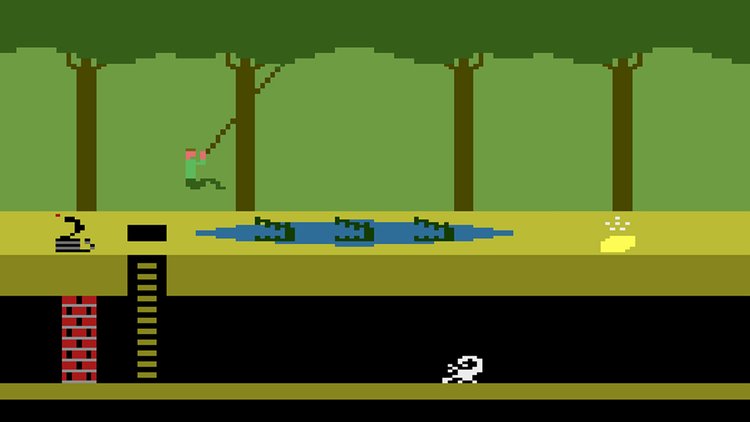
I like the game pitfall even though it is full of pitfalls.
SMALL TEAM RISKS ARE
1. Small Team Size
If you don’t get along with someone, or have a serious disagreement, in a team of five it is in your face ALL THE TIME. We interact multiple times a day, as opposed to a larger team where you may not speak to that animator more than once a week.
2. High Personal Impact
The scary, stressful, overwhelming feeling “if I don’t deliver” it will let down the whole team, it will directly impact sales, which in turn could impact everyone’s job security.
Humans are a herd mammal, we find safety in numbers. I’m not implying people on larger teams don’t care about the impact of their individual work, I know they do. But when the herd is 100 my individual performance may not be the one thing to make the project succeed, but I’m also pretty unlikely to torpedo the whole project too. In a herd of 3, that “we all lose” is much more in your face.
3. Broad Responsibility
Without clear delineation of responsibility every unfinished task in my discipline is potentially mine to do. Viewed this way this can be overwhelming, especially for certain personality types. Without specialists focused on doing a few things well, people are scraped like butter over too much bread.
4. Short Feedback Loop
Everyone able to make whatever occurs to them, and put it into the game, obviously seems like a recipe for chaos… and it can be. Without hierarchy it becomes even more important everyone shares the vision so we are making the same game. Unifying the creative energy of people is a challenge for a team of any size. Small team challenges takes on different unfamiliar forms.
5. Less Formalized Work Environment
An audio director writes lore and quests, a coder streams video updates, an artist does fan management. It’s exciting… but it is so different from the core discipline the context switch is expensive. It starts to get in the way of the core discipline work. Even worse, what if the person LOVES the adjacency work and deprioritize their core discipline tasks? Now the fans are happy but you have no art.
Case Study: George and Defiance
A BRIEF HISTORY OF TIME
George3 always wanted to work full time in games. It is a dream to work on a procedural RPG simulator like Archmage Rises.
After 18 months at my indie studio, he is burnt out.
What happened?!
3George is not his real name, though I did get his permission to share aspects of our story
It is unusual to write a blog post about an ongoing event with an uncertain outcome. George and I met and confirmed our commitment to each other and this goal: his healthy and successful return to work. Yet, as of this writing, I do not know what will happen, because people are complex and mental health is multifaceted.
Why not wait three months and see what actually happens? I believe the uncertainty and messiness of this moment needs to be captured and documented. A resolved story with a nice bow on it is too easily forgotten.
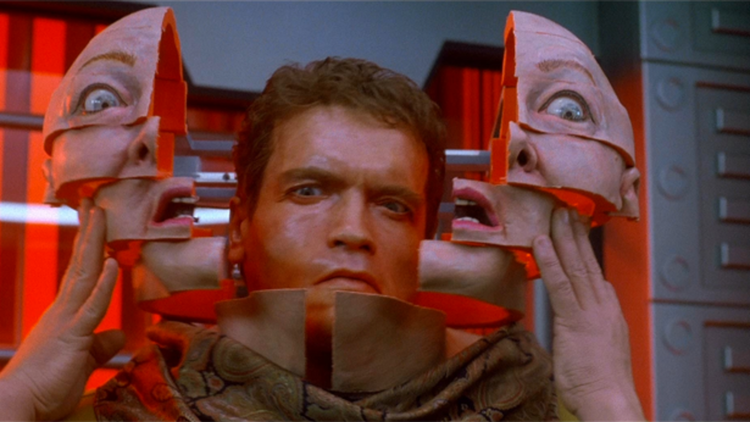
Total Recall has an uncertain ending, I think this is one reason people love it so! “Two… weeks…”
For context, Archmage Rises is a procedurally generated RPG, set within a simulator which creates a living breathing reactive world with hundreds of thousands of NPCs. I have been working on it full time for 8 years straight4. At first the team was just me with some freelance contractors, now we are up to 9 full timers, and next week Monday we hit 10 because our Narrative Lead starts. Yeah Nolan!
4 OK there were a few occasions across 8 years when I didn’t work on it, but it’s basically my full time job for 8 years.
1. GEORGE RELOCATED FOR WORK
George grew up and lived near a large city in the US. Defiance Game Studio is located on an island in rural Ontario in a town of 400 people. Myself, I come from Toronto area, relocating here 6 years ago. I’m familiar with the benefits and changes necessary to go from a big city, where there are people all over the place at all times of the day, to small town living where everything closes by 6pm and there are more trees than people. To some this sounds like heaven, for others hell.

Cities fit in three easy categories: more people than trees, about the same people to trees, and more trees than people!
George started remote coding for us but we both wanted him local. He worked remote for about 3 months as we waited for government paperwork to process. He was excited to be local and in the office with the rest of us. Even after 10+ years of remote work experience, I have to admit there is something unparalleled about being physically around the same whiteboard. The smells are certainly different.
George arrived in Canada June 2021: right in the middle of a severe COVID lockdown. The lockdown was so tight he was turned away at the border, despite all the paperwork being in order! A few phone calls later, the border guard was properly educated on the law, and George was allowed in the country.
The pandemic affected us all in many ways, but I want to zero in on the environment he moved to:
All non-essential businesses were closed. No in restaurant dining. No hockey games5 (professional or amateur), no organized sports, no movie theatres to attend.
He found his new home… empty. Absolutely nothing to do. To make matters worse, he had to quarantine for 14 days. No “welcome to Canada!” dinner party or ability to play board games with newly-local co-workers.

(5) There isn’t much point to living in Canada without hockey. It’s like Italy without pasta or football.
We believe this first experience set a mental model of “there is nothing to do here outside of work”. It wasn’t long before perception was entrenched as reality.
2. TONIGHT’S DESSERT IS… GAME DEV!
When the quarantine ended we did have a dinner party and board games. George acclimated to life in the office and things were great.
Defiance has a strict no crunch, no overtime corporate culture. Long ago Fred Brooks Mythical Man-Month convinced me of the wisdom of this.
So after 8 hours of intense, amazing, productive game dev George would go home. And what did he do?
Connected with people remotely…
who were also into game dev…
and soon enough he started doing personal game dev projects with friends.
Regardless of how experienced you are, or the type of game you are making, Game Dev is just plain hard. And while personal projects are great for research and personal development, Game Dev on top of full day of Game Dev is not a strategy to rest and recover.
3. SOCIAL SUPPORT NETWORK
The move did another thing: limited or severed an existing social network, without easy means to build a replacement.
A rural town full of trees doesn’t have a lot of people to play Friday Night Magic with. Plus, in Canada everyone is playing hockey on Friday night anyway…

Remote working during COVID has revealed something if we took time to notice: commuting into an office created clean breaks between work and rest. But when your separation between work and play is measured in seconds or less, we need to self-discipline to put back in clean breaks between work and rest.
The people George did know were co-workers. As great as that may be, it means no clean break between work and rest.
I face this myself: I’d like to play more board games, D&D, and such with co-workers. But do I really want to see the same people on Saturday as I did for 40 hours Mon – Fri? Sometimes no. I just want a break from it all.
4. ASSIGNMENT OR VOLUNTEERISM
At Defiance we don’t currently have a Lead Engineer.6 Programmers are basically equal, some with more experience than others.
6 I used to say I was the lead engineer until I realized I wasn’t doing any of the tasks a lead engineer should do, with all my other responsibilities. It helps for me to recognize we don’t have a lead engineer than keep up the façade.
We use sprints, Jira, and Kanban boards to manage our work. But when deciding which of our five programmers gets a particular task, how is that decision made?
Whoever is currently free is a big consideration, but it is always possible to reorganize the work so the tasks line up to when certain people are free.
Something I’ve learned early in my leadership career is this:
A person who is excited to work on a particular task, even if their approach/experience isn’t the best match, beats a person with the best approach/experience who isn’t excited about doing it.
Said shorter: Passion often trumps ability.
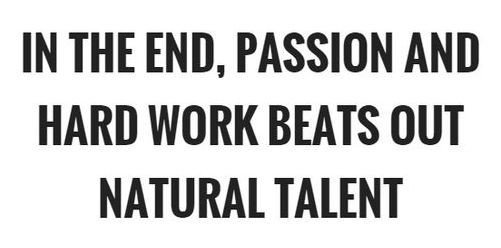
This is not the same as waiting for inspiration to strike before doing a task. That’s a fools hope and leads to a lot of wasted time.
As a leader and employer I want people to have meaningful work. If someone would prefer to tackle performant rendering techniques versus architect a data model, give it to them. Let them grow and gain experience in what interests them.
George is very smart and capable software developer. He loves to take on crunchy difficult tasks. He’s also quite outspoken in a team where other engineers are more quiet and reserved. When George doesn’t see anyone else volunteering right away for a certain task, he volunteers for it.
And I give it to him. Why not?
Well now I can tell you!
Because it ends up with one person singularly responsible for the most difficult parts of the code base. The most important parts. The parts where, if they break, they break HARD.
This puts incredible responsibility on the one person to deliver. We aren’t diversifying by spreading our code risk. If that one person doesn’t have a clear vision of the game, or misunderstands something technically, a lot of critical systems are in jeopardy of needing to be reworked.
It also puts mental pressure on the one person. If the serialization system, world generation system, and build system all fail on the same day, but it is spread among three different people, it isn’t a big deal for each person to fix their stuff. But if it is all the same guy? That guy is having a real bad day.
Doesn’t matter how many decades of experience I have, if that happened to me, I’d question my abilities and capabilities.
I didn’t keep an eye on how “the difficult mission critical” work was being assigned out.
Too late I found out from George the list of stuff overwhelming him. I thought he had a “regular” workload. He didn’t.
5. SILOS AIN’T JUST ON FARMS!

Our game is really really big and really really complex (RRBRRC) systems. When it works, it’s amazing to behold. When it doesn’t, its worse than a dumpster fire.
The challenge with RRBRRC systems is making sure more than one person knows how to work on them. You can’t do anything about hiring a new person: she has to ramp up, and the more experienced devs have to answer all her questions. But what we can do is start new features with two people working together. I’ll call it the Buddy System™ to differentiate it from Pair Programming which is much different. I instituted the Buddy System policy about 6 months ago.
THE BUDDY SYSTEM™ HAS SEVERAL ADVANTAGES
- Two people are attacking the problem, from their unique vantage and experience point. Maybe one person has done async before and another hasn’t. They can debate it out, best idea wins.
- There is someone else directly involved in the task and able to discuss it intimately with you. This isn’t rubber ducking where just talking through it helps. This is actual understanding and real suggestions when you are stuck.
- It forces documentation. Well… maybe force is too strong a word. It strongly encourages documentation. To collaborate you probably have to write some kind of tech spec, or make a diagram, or define an interface. The only way to remember what the other person said is to check the document. The processing of documenting helps one think through a problem better. (A secret reason why I wrote this article, but I’m not telling anyone!)
- More than one person understands it. When there are bugs or rewrites necessary, there is a choice of who can fix it. As a scheduler having a choice is like manna from heaven! It also makes life better for vacation and sick days.
- Finally, and this is critical for team morale and burn out: When things get tough, when a dev is in their second week and the thing just won’t work!, the person doesn’t feel alone and stuck with it. There is someone else able to jump in and immediately help. The morale support is massive when doing RRBRRC systems.
So with all these benefits and the Buddy System™ implemented a while ago, why would people be siloing?
Because I went on vacation.
I know, I know, how dare I! But there was just no escaping it. Then, the day I returned, I got sick with COVID. All in, I was away about 6 weeks. Oops.
I bring up my vacation for one simple reason: because teams need gentle steady pressure guiding it in the right direction.
The volunteerism mentioned above, and my absence, the team reverted to its natural state: silos and fiefdoms. George suffered for many weeks.
Basic task management is if you two 2 week tasks, and 2 programmers, they each start on a task and you’ll have both complete in two weeks. Time brings a certain quality to tasks, the longer the duration the more time for insights to accrue and the subconscious to pop up something remarkable.
But the Buddy System™ above screams NO! Assign two programmers to task A for a week, and two programmers to task B for the second week. It is the same duration but quality will be higher for the reasons stated above.7
George ended up getting deeper and deeper into some complex systems with no buddy support. When things started going bad (bugs, misunderstandings, change requests, etc) he was alone.
7 My simplistic example is false because nine women cannot make a baby in one month. Two programmers cannot complete a 2 week task in 1 week. The duration goes up slightly but the quality goes up significantly, making it worth the investment. But the point remains.
6. WHO DO YOU WORK FOR?

A friend owns a landscaping business with about 30 employees. He works in a home office. He shared his frustration with how difficult it is to turn work off and spend time with his young family. If you don’t know, landscaping and snow removal is typically a lot of little invoices for ~$100 as opposed to one big invoice for $10,000.
He said, “My inbox is so full. And I know if I just send out that one more invoice, then I get that little bit more money, and if I do the next one, then that is just a little more. It helps me and the company. It is just so tempting, it’s so hard to put down.”
He described the business equivalent of the Civilization “just one more turn” problem.
The difficulty here is personal responsibility and the short feedback loop. No one else can send out those invoices, it’s him or they don’t get sent. But the second is what I want to focus on: knowing if you just do that one more simple task, you’ll be that much more successful. I’m no psychologist,8 but I’ll just say this setup is addictive.

(8) I don’t even play one on TV!
In my software business we would work for months, or even a year, on a project, and then I would send out nice fat milestone invoices for $100,000+. We had a different problem: how to correlate today’s activity, the direct task right in front of me, and the greater success of the company. It was very abstract.
Like my friend, I owned my own business.
Our revenues and personal income were similar.
And yet he struggled with the temptation to do just a little bit more, but I did not.
It is the distance between the act and the reward that made it possible for me to keep work just during work time.
At Defiance we work for ourselves, we work for our teammates, but ultimately we work for the fans.

Not an actual picture of our fans.
In leaving professional services for game dev, I naively thought I was getting rid of the client and gaining my freedom and autonomy. It was just the opposite. I simply replaced having one or a few “bosses” for 10,000+ bosses.
George is a social guy. He loves hanging out, meeting people, chatting with everyone. He saw I was spread thin and volunteered to pick up on the fan interaction and making the update videos. This seemed like a win win: I was struggling to do it with any regularity, and he was excited and interested to do it.
But the short feedback loop became his undoing.
There is always another comment to respond to.
Another post to make.
Another video to shoot.
He told himself, if he did it well, the game and the company would be successful!
If he didn’t, he would bear most of the blame.
Not only this, but he would also let down his coworkers. The very people who saw him excitedly volunteer for the responsibility.
This short feedback loop creates the pressure to work harder, get more done, deliver for the fans, deliver for the team.
Drive is good. Motivation to excel is good. I want those and foster them.
But constant pressure to do it all with unrealistic goals, is death, no matter how talented you are.
I should have seen the signs and the unhealthy cycle sooner.
PRESENT DAY

This brings us to today. George was feeling overwhelmed for about 3 months until he started getting physical symptoms. This is when we discovered he is burnt out.
Defiance corporate principles #4 is “People First”. I met with George at his home to discuss his situation. I told him to take time off, not to worry about vacation days, he’ll be taken care of. And don’t worry about the game, or the deadlines, or the tasks. We’ll figure something out.
One of our programmers said it best, “Better to keep George than to keep a deadline.”
Lessons Learned So Far
As of now, George has been away from work for 4+ weeks.
Giving people time off is easy.
Identifying and structuring meaningful change is hard.
We have neither unlimited time nor unlimited budget9. We have a hard deadline to get a build ready for fans and press for Steam Next Fest. Our entire marketing plan is hinged on this date!
9If I ever get into this situation I promise to write an article “13 Hidden Problems with Unlimited Time And Budget!”
In grappling with how we stop this from happening again, the following are my current take aways.
1. ENSURE PEOPLE HAVE A SOCIAL/SUPPORT NETWORK NEARBY.
When I helped George move here, I helped him find a place to live.
What I didn’t do, was help him find a place to thrive.
People’s social network are their own and I don’t think anyone wants their employer meddling with it.

But if a studio is going to relocate someone, we can do more to introduce them to the area and give them some ways to start to lay down roots.
George is making great progress on this. He’s wisely utilized the time off to meet new people, focus on relationship building, and do new things he didn’t realize were here all along.
It’s worth asking yourself What can I do this week to strengthen my social network?
Last weekend some work and non-work people gathered at my place to play the very excellent Star Wars Rebellion.

When in doubt, play Star Wars!
2. WHAT MENTAL MODELS DO WE HAVE THAT ARE FALSE, OR NO LONGER TRUE?
First impressions are powerful. If I go to a store looking for a product, if they don’t have it or I can’t find it, that’s it! I will never go there again looking for that kind of product. I may even never go there again.
When George showed up in Jun 2021 his first impression was there was nothing to do. It was impossible to go out for a burger and shake. With the passing of COVID (it’s passed now, right?) things did open up but George didn’t realize it and didn’t know what to do about it. It wasn’t his first week in the area, it was 6 months in!
This point seems highly specific to a unique situation, but I think it does have broader significance.
What first impressions do we make of the game, of a person, of the team, of the culture, of the way roles & responsibilities are divvied out, that just aren’t true anymore? It makes sense why we reached those conclusions, but is there new information that can change them?
We write cache refresh routines, but how often do we flush and refresh the cache of our mind?
3. WHEN YOUR HOBBY IS YOUR WORK, FIND NEW HOBBIES
If you are reading this I assume you love games. Perhaps you are not working in games, but maybe that is a goal.
I’m here to tell you that once you cross that threshold of video games being your job, you lose video games being an escape and safe place to retreat when you need to restore your mind, body, and soul.
Once I started making games as my work, every game, no matter how much I love it, or how different it is from what I am making, becomes potential material for work and a reminder of work. It could as innocuous as the same engine logo you use showing at a game start up. Or hearing the same voice actor we hired, or seeing how they solved a similar design problem differently.
On the AIAS Game Makers Notebook podcast Robin Hunicke would often mention taking up watercolor painting because it is so separate and different from her work.
Since I was very young, I have always enjoyed painting miniatures: Ral Partha, Games Workshop, Reaper. There is something enjoyable (the act of creating) and zen (the focus on something so minute) about moving a physical camel hair brush and acrylic paint around to bring a miniature to life.
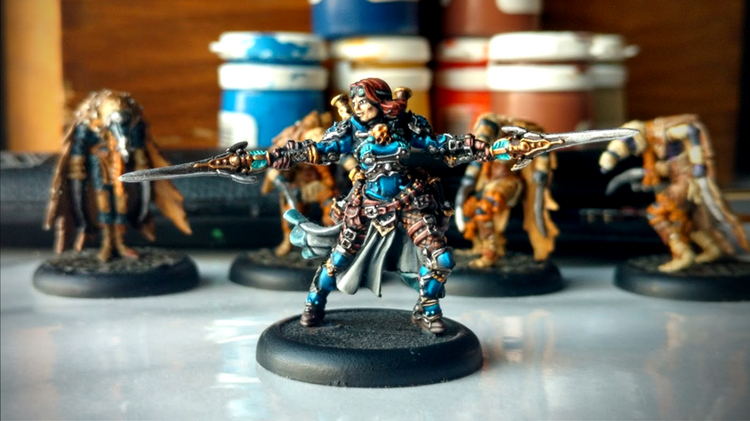
I may not be able to afford to take a physical vacation, but I can completely disconnect and take a “vacation of the mind” by painting up some minis.
What is your “mini painting”?
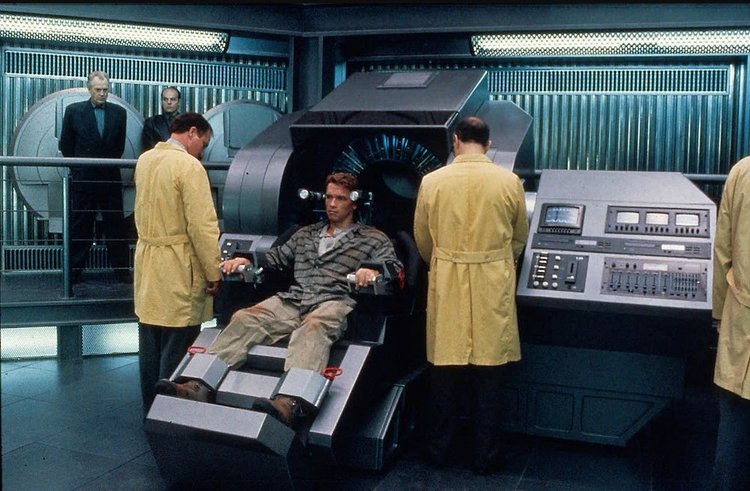
Hey vacation of the mind, sounds like Total Recall!
4. PSYCHOLOGICAL DISTANCING
I used to have a 45 minute drive to work in an office. Can’t say I miss doing that.
Or do I?
Defiance currently works out of an office in my basement. Our new freestanding office is days away from being ready to move in.10
10It’s been a year of nonsense with the renovations, but finally, the plumber just has to come and connect up the toilet and we can move in!
The computer I am writing this at is my work computer. It is also the only place I can play mouse & keyboard games like Diablo III and Warhammer Total War.
Maybe this will resonate if you’ve experience COVID work-from-home:
It is really hard for me to enjoy sitting at the exact same desk,
in the exact same chair,
with my hand on the exact same mouse,
staring into the exact same monitor,
and try to forget about work and have some fun.
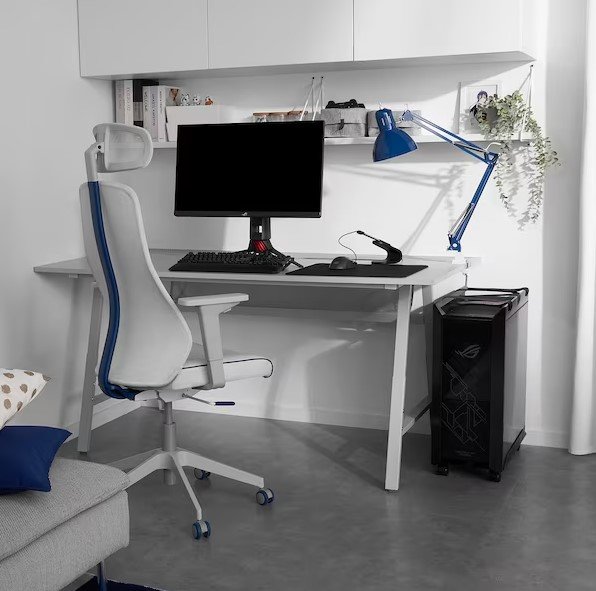
Honestly, I just can’t do it. Especially on a weeknight where I just spent 8hrs in this chair.
We programmers sometimes need to be reminded we are physical beings, not just logical mental abstracts. Our environment matters to our thought and emotion, what is called Psychological Distance (or feng shui if you prefer).
I’ve discovered how important it is to psychological distance through physical separation from work. Even when work & play both occur in your home.
I bought another computer and put it about 5 meters away from this one in a former storage room. It has its own screen. It has seating on a couch so I’m in a more relaxed position than the upright work computer. It has its own mouse and keyboard for tactile difference. I can play video games and disconnect from work.
A second computer setup isn’t cheap. But what is my mental health worth?
More than a second computer.

It doesn’t quite look like this, but you get the idea.
Not everyone can afford or has space for a second computer setup. What can you do? I sometimes move my desktop computer to the living/family room to play games like Minecraft Dungeons together with the kids. Same computer, but in a different room with more natural light. Sure it is a pain to unplug/replug everything… probably takes less than 3 minutes each time.
These are simple examples of how to get back your psychological distance from work.
The new physical office, no longer in my home, will help both George and I bring life back into balance.
Not everyone can or should get a separate office location. But what simple things can you do to get back your psychological distance from work?
5. DOUBLING DOWN ON THE BUDDY SYSTEM!
When we discovered George was burnt out I told him to stop focus on work and focus on himself. Great for him, but that neither gets the features done nor the game shipped.
Soon as I returned to the office, we went into crisis mode. George’s tasks are mission critical and holding up the build. Even worse, they were unfinished and no one really knew how they worked or should work. We spent a week+ trying to fix it and secretly hoping George would come back and just do it for us.
When it was clear we couldn’t easily fix it nor would George be coming back soon, I made the decision to just start over with the people I had. But this time, every programmer was involved in the design discussion, pooling our collective knowledge to come up with a simple but workable solution. It only took 5hrs.
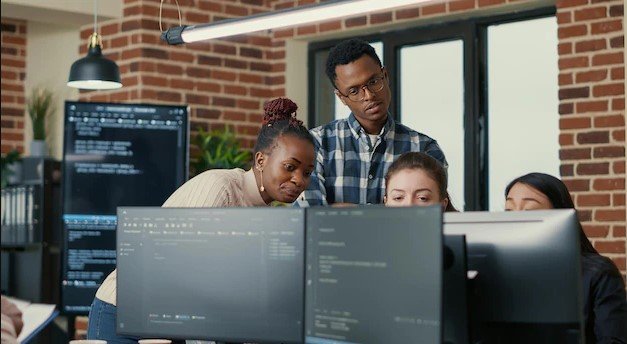
The action was taken in crisis but it was immediately clear <facepalm> this was the best way to tackle all new system tasks. Forget two people solving a problem, put four on it! It was sort of like an extremely technical kickoff meeting. Even though not everyone attending would be responsible for implementation, everyone participated in forging it.
This may seem like the opposite of celebratedly lean indie development. But there are valuable intangibles we discovered:
- Everyone was there when the decision was made. All ideas were considered, one was chosen. There is no second guessing later if the direction is right.
This is confidence for management, I know it won’t be rewritten.
This is confidence for implementers, they know their work won’t be rewritten.- Programmers using a system designed by someone else inevitably ask “Why did they do it like this?!” These questions are already answered, because they were present in the room at its birth.
- We don’t know what we don’t know. Inevitable “Did you consider?” questions come up when a new system is designed and used by others. We were able to harden our design because four programmers were in the room poking and prodding the new design and it passed every theoretical test we could throw at it.
We went from one person trying to solve a critical system for everyone to everyone solving it for everyone.
Everyone was happier and believed in the new system because they were involved. This is a fantastic way to get everyone on the same page.
This worked so well it’s our new operating method. Not every feature, but for the significant ones we will now do a technical kickoff with all programmers to brainstorm the design.
Something to consider: What tasks am I assigning to one or few people that should instead be brought to a group? It’s not just about the solution but the buy in too.
6. SPOT SIGNS OF BURN OUT

How do you spot burnout before someone is ill? This question is worthy of its own article, I’ll hit some practical highlights from my experience.
In programming there is a special kind of coding error called “Undefined Behavior” because it is impossible to know what you’ll get at runtime. Sort of like dividing by zero… any answer is equally valid.
People are afraid of saying they are burnt out because the result is… undefined behavior. Will they get fired or time off? Will you plead with them “can you just do this one thing?” or tell them to suck it up and get their act together? Will they be passed over for a promotion or sweet additional responsibilities in the future?
No matter how good the corporate culture, recognize people would rather suffer than ask for help.
The good news is they will drop hints. They have to, no one has a perfect poker face all the time. So here are some clues to look for.
- Check body language and tone at standup – are they the same or is something off from their normal everyday? Not everyone is thrilled to be awake and in a standup meeting (What?!) so this isn’t a pep or energy test. We’re looking for variance from the norm.
- Listen for key words in standup updates like: fed up, struggle, defeating me, yet again. This indicates their tank is empty, burn out begins when the tank is empty.
- Check workload balancing. Not just number of tasks, but the kind or weight of the tasks. George had no more tasks than anyone else but their weight was all higher than others
- Look for what I’ll call “raised temperature”:
- How patient are they with others – burnt out people don’t have time for others
- What kind of language are they using – short, demanding, filled with expletives or calm and gracious
- Do they raise their voice quickly and start a battle rather than simply debate ideas?
- Look for patterns in sick leaves – they are trying to get better without assistance by taking a day or two here and there. It probably isn’t working.
- This is the indicator I saw in George that made the other hints above suddenly come into focus
- Take note if they say something along the lines of “I am burnt out.” This sign is very rare, but it does happen and is very accurate. Try not to miss this one.
7. INTENTIONAL REST

Judaism has the Sabbath, one day specifically focused on rest. In the first century they were so serious about it there were laws against carrying a mat or even sticks for firewood. This idea of purposeful, focused, disciplined rest has always intrigued me as a person and employer.
At Defiance we don’t work overtime. If there are problems with a build, or the need to work late to push out a release, it is a simple time swap to take hours off in the next few days.
But what do you do when you go from 5 programmers down to 4 and you have to get a build out?
If George is burned out, what about others?
When I told George to take off all the time he needs, his first concern was for the team: Who is going to be forced to pickup his slack? How will we hit the deadline? Now George feels guilty for not working!
In the face of a looming deadline, uncertain technical debt, and unknown burnout level amongst the team, I made a shocking decision: I declared a purposeful day of rest on Friday. Everyone suddenly got a three-day weekend.
George didn’t have to feel guilty for being off because everyone was off. We did it out of solidarity with him.
Additionally, if others are running ragged, they got some unexpected intentional rest. When we could have asked people to work more to hit a deadline, I made them work less. We agreed to discuss on Monday’s standup what we did with our day of rest.
Everyone returned on Monday in a better mood. We swapped stories with how we used our day of rest. It was fun and bonding. It was a moment of living Principle #4: People First. Morale was high. Fear was replaced with “We got this”.
To the external world of releasing and selling Archmage Rises, is this one day going to matter? Probably not. But internally it mattered a lot.
Consider where and how can I execute intentional rest?
The Journey Continues
This ordeal isn’t over, we’re just a month in. George is heading back home for US Thanksgiving to visit friends and family. I think this is a great plan and expect it to bring incredible healing.
After 18 months, even burnt out, George is still passionate about the game and the company. This is remarkable and something a coworker pointed out while reviewing this article.
I hope the transparency George and I have shared about Small Team Burnout helps you.
If you are feeling burnt out: say something. Your coworkers probably don’t know it or don’t know the extent of it. They can’t act to change things until they know.
If you are leading a team, hopefully there is something here for you to course correct with based on our gleanings. Bring up burnout at a stand up or 1:1. I didn’t know it was happening until it was too late.
This is Game Dev.
SDG
KeighnMcDeath
RPG Codex Boomer
- Joined
- Nov 23, 2016
- Messages
- 16,382
I didn’t know it was happening until it was too late.
This is Game Dev.
SDG
SDG? Uh what? Sumdrunkguy? He's a game dev?
- Joined
- Jan 28, 2011
- Messages
- 100,696















http://www.archmagerises.com/news/2022/12/23/update-145-2023-roadmap
UPDATE #145: 2023 ROADMAP
As I write this we are finishing our last day of 2022. It’s been a full year with a much work going into the game. The team is up to 9 full time people now. The game is showing the benefit of everyone working.
We plan to release the game to Early Access April 2023.
I want to share a few of the milestones we’re working towards.
Dec 23 2022 Preview QA of Build 14
We put a build up on the Beta branch for those who have bought into the Pre-Alpha.
Password for the Beta branch is “Build14Build14”
Feb 6-13 2023 Next Fest
We are launching a demo of the game into Next Fest to give people a chance to taste Archmage Rises. A lot of work is going into this for submission late Jan.
There will be live broadcasts of us developers playing the game during that week.
We are releasing a preview of this demo build on the beta branch today for those interested in helping with QA.
April 2023 Early Access
From Feb to April we will be polishing the game and getting it ready for public Early Access. That is our Alpha. The Alpha won’t have all the features we’ve promised over the years, but many of the core ones. The rest will come during the Early Access period.
laclongquan
Arcane
SO Next Thursday?
ArchAngel
Arcane
- Joined
- Mar 16, 2015
- Messages
- 21,977
Which year? 2032?SO Next Thursday?
- Joined
- Jan 28, 2011
- Messages
- 100,696















Incoming demo:
We're very proud to reveal what we have been working on for 9 years!
I thought the dude's wife killed him coz be wasted their moneys for years on this
ArchAngel
Arcane
- Joined
- Mar 16, 2015
- Messages
- 21,977
He is lucky she is probably a geek too, can you imagine if he wasted it on building a car from nothing.I thought the dude's wife killed him coz be wasted their moneys for years on this
Viata
Arcane
Why are you guys assuming he still has a wife?
ArchAngel
Arcane
- Joined
- Mar 16, 2015
- Messages
- 21,977
You think he killed her, cut her into pieces and put her in his fridge in the basement?Why are you guys assuming he still has a wife?
Viata
Arcane
Nigga couldn't even focus on what was important in this game and you expect him to focus on how to kill his wife and what to do with the body? If he kills her, it is going to be like this:
KeighnMcDeath
RPG Codex Boomer
- Joined
- Nov 23, 2016
- Messages
- 16,382
They hired me to dig the graves.
- Joined
- Aug 23, 2015
- Messages
- 6,237

Can't wait for my grand kid to play Archmage Simulator alongside Star Citizen
I played it, it's ok. I think it somewhat did what it aim to accomplish, but personally, still rife with the multitude of issues in term of proc gen role playing. Lifeless NPC, boring quest, generic dialogue. Their world building engine is pretty impressive, but i fail to see how they trickle down meaningfully to NPC's "lives". The innkeeper in one town to other are basically the same service dispenser with different portrait. Chatting with people, i expect at least they'd blurt out some random exposition from their randomly generated history, but chatting with several NPCs just trigger random "good to see you, or good talking to you" while their stat toward you artificially rise like in oblivion.
The quest too is pretty generic. Again, the same problem that plague prog gen game and yet imo, battle brothers did it much better because even if they only shuffle bunch of objectives, it have the appropriate context to the quest giver. In my short time with archmage rises, random guy in the town hall judt give me random generic kill 5 goblin and i have to search hexes randomly for goblins.
I have the feeling that this project is unfortunate as the above problems can probably be solved with AI, that just had gotten sophisticated and more public in the past 2-3 years. I don't know at this point of development, it's possible to rework the entire thing to feature some form of AI like in bannerlord. Or they could add another decade of dev time while waiting for more advanced form of AI.
I like what they go for combat and the magic in general where you can cast spells anywhere and deal with the consequences. You can also modify freely the intensity of your spells according to the stamina use. Similar to morrowind magic crafting, but if you can set the parameters on the fly.
In the end, i feel like this isn't ever going to be the game for me, but props to sticking to this for 9 years. Whatever the end result is, doing something out of your own pocket for 9 years with the possibility of not earning anything is respectable. I hope they pull trough and find their niche large and comfortable enough.
The quest too is pretty generic. Again, the same problem that plague prog gen game and yet imo, battle brothers did it much better because even if they only shuffle bunch of objectives, it have the appropriate context to the quest giver. In my short time with archmage rises, random guy in the town hall judt give me random generic kill 5 goblin and i have to search hexes randomly for goblins.
I have the feeling that this project is unfortunate as the above problems can probably be solved with AI, that just had gotten sophisticated and more public in the past 2-3 years. I don't know at this point of development, it's possible to rework the entire thing to feature some form of AI like in bannerlord. Or they could add another decade of dev time while waiting for more advanced form of AI.
I like what they go for combat and the magic in general where you can cast spells anywhere and deal with the consequences. You can also modify freely the intensity of your spells according to the stamina use. Similar to morrowind magic crafting, but if you can set the parameters on the fly.
In the end, i feel like this isn't ever going to be the game for me, but props to sticking to this for 9 years. Whatever the end result is, doing something out of your own pocket for 9 years with the possibility of not earning anything is respectable. I hope they pull trough and find their niche large and comfortable enough.
Nigga couldn't even focus on what was important in this game and you expect him to focus on how to kill his wife and what to do with the body? If he kills her, it is going to be like this:
You can't google that stuff? Oh shi-... be back in a bit.
Viata
Arcane
So I was reading this thread and only know I realized the guy has been making this game since 2014. That is sad, holy shit.Not the first time the Codex has run into this guy: http://www.rpgcodex.net/forums/inde...repents-and-converts-to-pc-development.93556/








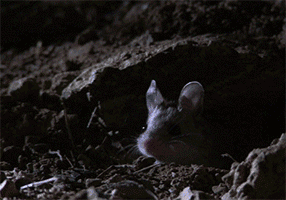

![Glory to Codexia! [2012] Codex 2012](/forums/smiles/campaign_tags/campaign_slushfund2012.png)



